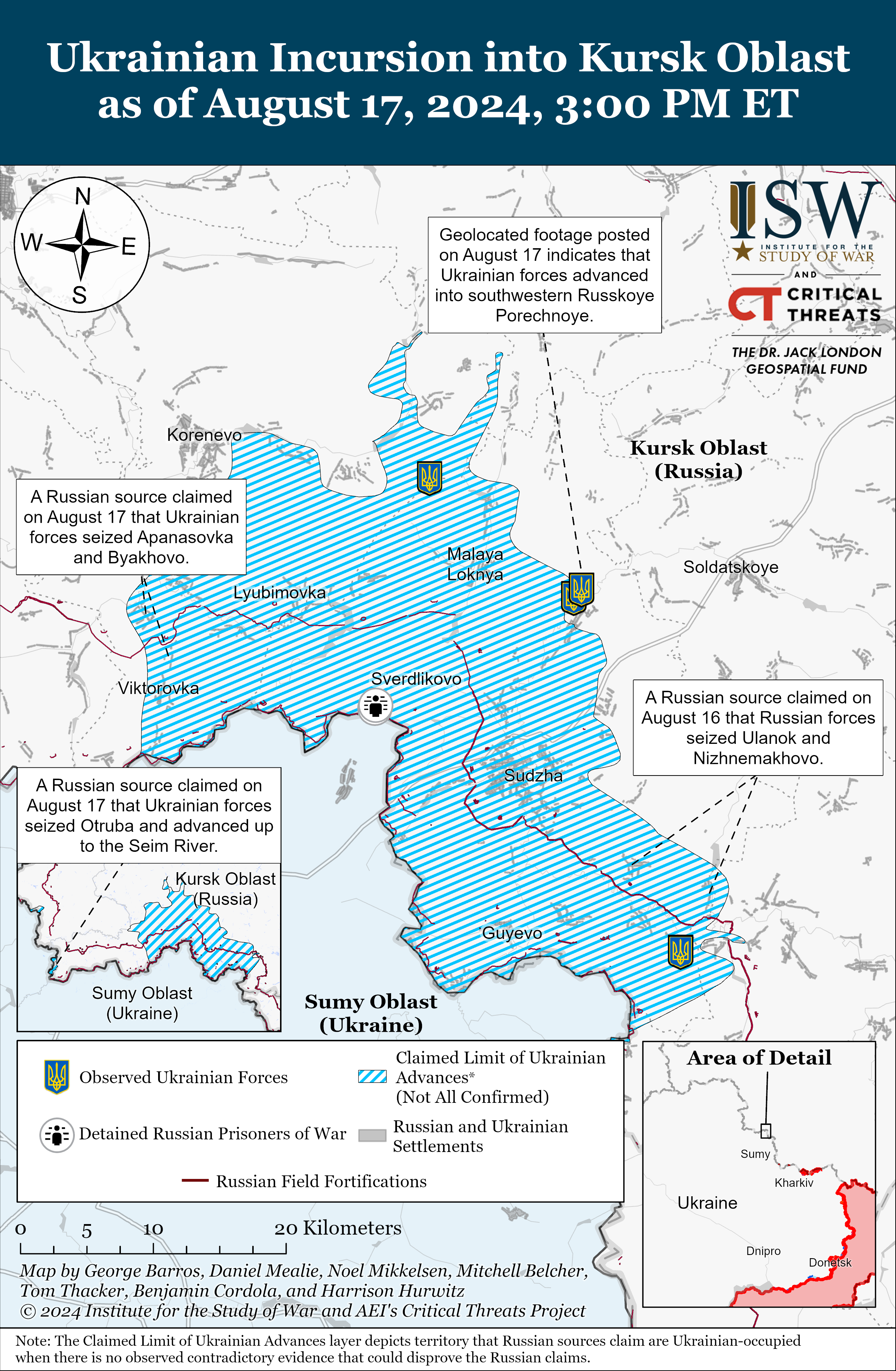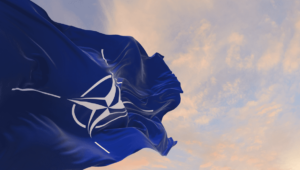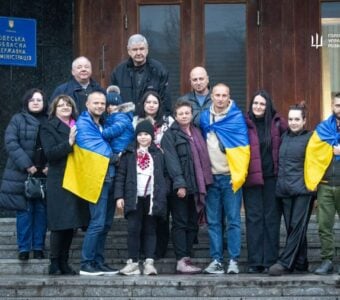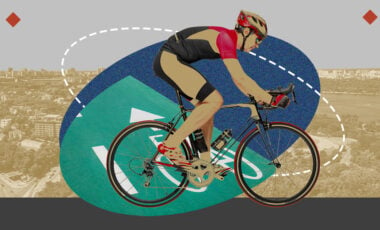Ukrainian maneuver warfare in Kursk shows rapid gains and strategic impact against Russian forces — ISW

Фото: Фейсбук / Генштаб ЗСУ
The operation of Ukrainian forces in the Kursk region demonstrates how maneuver warfare can be an effective means of offsetting the Russian Federation's superiority in manpower and equipment.
Rubryka reports this, referring to the Institute for the Study of War (ISW), which highlighted the significant achievements of Ukrainian forces in the region.
According to American analysts, Russian troops captured a total of 1,175 square kilometers of territory across the entire theater of operations from January to July this year.
However, during the operation in the Kursk region, Ukrainian forces managed to advance approximately 800 square kilometers in just six days, from August 6 to 12.
As of August 17, the Ukrainian military continued to advance 28 kilometers deep into the region.
Military analysts emphasized that the size of the territory captured by Ukrainian forces is not the sole indicator of the operation's success. However, maneuver warfare can lead to much faster advances than positional warfare.

Photo: ISW
At the beginning of the operation in the Kursk region, Ukrainian troops targeted mostly unprepared and poorly equipped Russian defensive positions along the border. As Russian forces brought reinforcements into the area, Ukrainian forces continued to employ maneuvers, enabling them to make rapid progress.
The use of maneuver warfare in the Kursk region exemplifies how operational surprise and swift maneuvers can achieve military objectives in a shorter time with fewer resources. In contrast, a prolonged positional war exacerbates Ukraine's resource deficiencies and increases costs for both Ukraine and its partners.
This operation underscores the importance of resuming operational maneuver in warfare. Ukraine's successes in the Kursk region demonstrate that Ukrainian forces have learned from the positional warfare of recent months and are now effectively employing maneuver tactics, which could have a significant impact in the future.
Key takeaways as of August 17
- The Ukrainian incursion into Kursk region and Russian offensive operations in eastern Ukraine are not in themselves decisive military operations that will win the war. Both Russian and Ukrainian forces lack the capability to conduct individual decisive war-winning operations and must instead conduct multiple successive operations with limited operational objectives that are far short of victory, but that in aggregate can achieve strategic objectives.
- It is too early to assess the outcomes and operational significance of the Ukrainian incursion into Russia and the ongoing Russian offensive effort in eastern Ukraine. The significance of these operations will not emerge in isolation, moreover, but they will matter in so far as they relate to a series of subsequent Russian and Ukrainian campaigns over time.
- Russian President Vladimir Putin and the Russian military command likely view maintaining the theater-wide initiative as a strategic imperative to win a war of attrition against Ukraine, and both the Ukrainian incursion in Kursk region and the Russian offensive effort in eastern Ukraine will impact whether Russian forces can retain the initiative in the short-term.
- Ukrainian officials have indicated that Ukraine's operation in Kursk region does not have long-term territorial objectives but instead aims to generate theater-wide operational and strategic pressures on Russian forces.
- The Ukrainian operation in Kursk region has already generated theater-wide operational and strategic pressures on Russian forces, and subsequent phases of fighting within Russia will likely generate even greater pressures on Putin and the Russian military.
- Russian forces will not be able to retain the initiative throughout eastern Ukraine indefinitely, and the culmination of Russian offensive operations will present Ukrainian forces with opportunities to contest the initiative further.
- The Russian offensive operation to seize Pokrovsk is emblematic of the Russian approach to the war in Ukraine that embraces positional warfare for gradual creeping advances and seeks to win a war of attrition.
- Ukraine's incursion into Kursk region illustrates how Ukrainian forces can use maneuver warfare to offset Russian manpower and materiel advantages.
- It is simply too early to draw dispositive conclusions about the lasting effects that the two very different Russian and Ukrainian efforts will have on the course of the war.
- ISW offers these observations about the Ukrainian incursion in Kursk region and the months-long Russian offensive effort in eastern Ukraine to provide a balanced framework for assessing the significance of the current Russian and Ukrainian operations on the course of the entire war, which will remain uncertain for the foreseeable future.
- Russia and Ukraine were reportedly planning to meet in Qatar in August 2024 to discuss a possible moratorium on Ukrainian and Russian strikes on energy infrastructure, but Russia temporarily postponed the summit after the start of the Ukrainian operation in Kursk region.
- Russia remains uninterested in any broader, meaningful negotiations regardless of Russia's willingness to entertain or agree to a possible moratorium on energy infrastructure strikes.
- Russia is almost certainly only considering a possible moratorium on energy strikes due to Ukraine's months-long strike campaign against Russian oil refineries — demonstrating a secondary effect of Ukraine's strike campaign.
- Ukrainian forces advanced within Chasiv Yar, and Russian forces recently marginally advanced near Kreminna, Pokrovsk, and Donetsk City.
- The Russian government continues efforts to use the "Time of Heroes" program to integrate trusted Russian military veterans into Russian government roles.


















































